The companionship of pet birds has enriched human lives for centuries, but it’s only in recent years that scientific research has shed light on the tangible benefits of this unique bond.
Owning pet birds, whether parrots, canaries, or finches, has been shown to have a positive impact on the physical, emotional, and psychological well-being of their human caregivers.
In this exploration, we delve into the Benefits of Owning Pet Birds Based on Science.
We will uncover the physiological effects of bird-human interactions, the role of pet birds in stress reduction, and their potential to boost mental health.
Additionally, we’ll examine the social and emotional support that these avian companions offer, ultimately highlighting the profound positive effects that pet birds have on the lives of their owners.
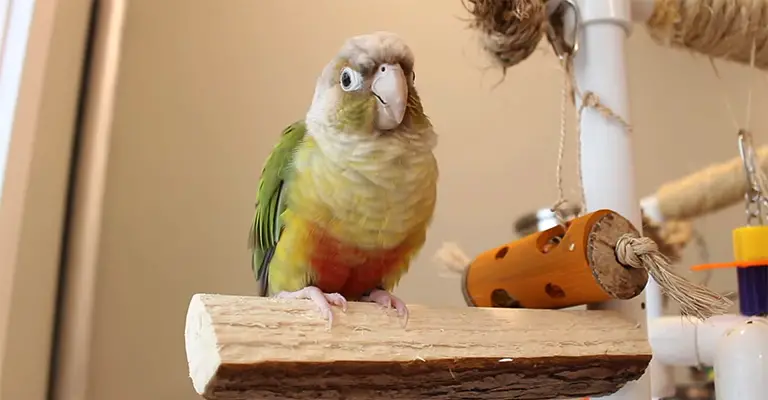
Benefits of Owning Pet Birds Based on Science
Here are nine benefits of owning pet birds based on science:
Long Lifespans
Many companion birds have very long life spans, especially compared to other common household pets like dogs and cats.
This long lifespan means you won’t have to deal with the grief of losing your beloved pet after just a few years together. Some bird species can live up to 75 years or more in captivity.
High Intelligence
Birds are highly intelligent pets. With enough patience, many bird species can be taught to talk and sing.
Particularly brilliant species, such as African Grey Parrots, can not only parrot what they say but use words in context, asking for things and telling their owners how they feel.
Some species can also train themselves to repeat sounds from inanimate objects such as doorbells, car honks, and other animals you have in the home.
Minimal Grooming Requirements
Birds are naturally hygienic creatures. They preen their feathers every day to keep them looking their best. All you really need to do as a bird owner is a quick nail trim occasionally. When given access to a bath, your bird will bathe itself.
Highly Affectionate
You might think birds are aloof pets because the ones you see in the wild aren’t the most affectionate.
However, many pet birds are very loving and enjoy cuddling with their owners. They can also bond with other birds and form lifelong friendships.
Social Interaction
Recent studies have shown that keeping birds encourages social interaction, which is good for your mental health.
Bird owners tend to have more friends and participate in more social activities than non-bird owners.
Nurturing
There is a basic “need” to nurture and take care of someone. Owning a bird can fulfill this need and make you feel more responsible and caring.
You can also learn a lot from your bird’s behavior and personality, such as curiosity, playfulness, and resilience.
Empathy
Any pet encourages empathy in children. However, birds are especially good at teaching children how to be gentle, respectful, and attentive to the needs of others.
Children who grow up with birds tend to be more compassionate and empathetic towards animals and people.
Lower Stress
Owning a bird can help you reduce stress and anxiety levels. Studies have shown that interacting with birds can lower blood pressure, heart rate, and cortisol levels. Birds can also provide emotional support and comfort during difficult times.
Keep Your Mind Sharp
Owning a bird can keep your mind sharp and prevent cognitive decline. Birds can stimulate your brain with their vocalizations, movements, and antics. They can also challenge you to learn new things, such as their names, songs, and tricks.
How do I take care of a pet bird?

Here are some general tips on how to care for a pet:
Choose A Suitable Cage For Your Bird
The cage should be large enough for your bird to move around comfortably, stretch its wings, and play with toys.
The cage should also have a grate to separate your bird from the substrate and a tray that can be easily cleaned. The bars of the cage should be appropriate for the size of your bird, not too small or too large.
Provide A Balanced And Varied Diet For Your Bird
Your bird’s diet should match what it would naturally eat in the wild, as well as provide all the essential nutrients it needs.
You can use commercial bird food as a base, but you should also supplement it with fresh fruits, vegetables, seeds, nuts, and other treats.
Keep Your Bird’s Water Clean And Fresh
Your bird needs access to clean water at all times, both for drinking and bathing. You should change the water daily and wash the water dish regularly.
You can also provide a shallow bowl or a spray bottle for your bird to bathe in. Bathing helps your bird keep its feathers clean and healthy.
Provide Toys And Perches For Your Bird’s Enrichment And Exercise
Birds are intelligent and playful animals that need stimulation and activity to prevent boredom and stress.
You can provide a variety of toys for your bird to chew, shred, swing, and explore, such as wooden blocks, ropes, bells, mirrors, balls, and puzzles.
Interact With Your Bird Regularly And Gently
Birds are social creatures that crave attention and affection from their owners. You should spend time with your bird every day, talking to it, playing with it, and teaching it new tricks.
You should also handle your bird with care and respect, avoiding sudden movements or loud noises that might scare it.
Monitor Your Bird’s Health And Well-Being
You should check your bird daily for any signs of illness or injury, such as changes in appetite, weight, behavior, droppings, feathers, or breathing.
If you notice anything unusual or concerning, you should contact your veterinarian as soon as possible.
What Are Some Of The Best Birds To Pet?
Here are some of the best pet birds for beginners and experienced bird owners:
Parakeets
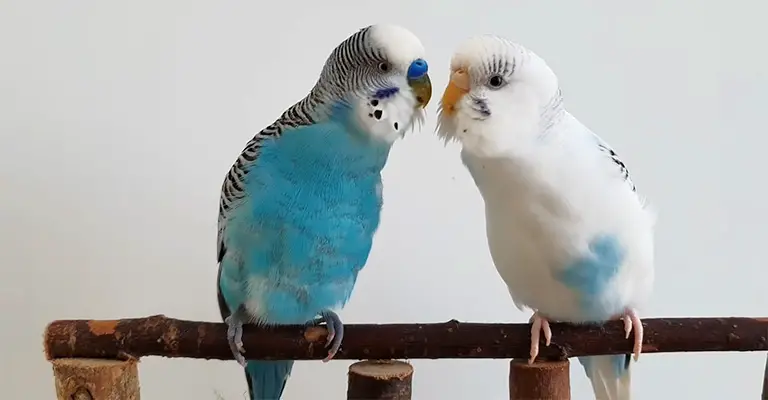
Parakeets, also known as budgies or budgerigars, are small and friendly birds that are popular around the world.
They are easy to tame and care for, and they can learn to talk and perform tricks. They have a pleasant chirping voice and come in many colors.
Cockatiels
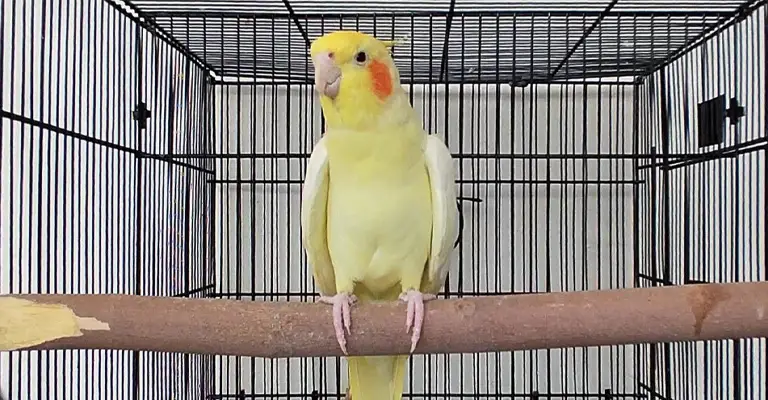
Cockatiels are another great choice for beginners, as they are gentle, affectionate, and intelligent.
They can also learn to whistle and mimic sounds, but they are not very loud. They have a distinctive crest and come in various mutations, such as gray, yellow, white, and cinnamon.
Canaries
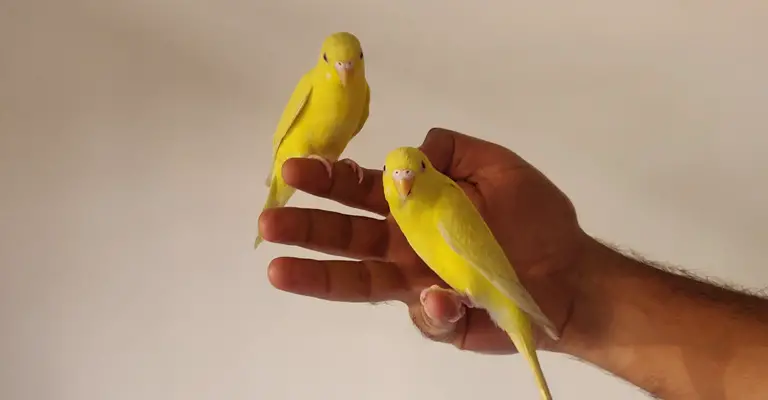
The canaries are beautiful and cheerful birds that are known for their singing abilities. They don’t need much human interaction, but they can brighten up any room with their music. They come in different colors and varieties, such as red, yellow, green, and frilled.
Conures
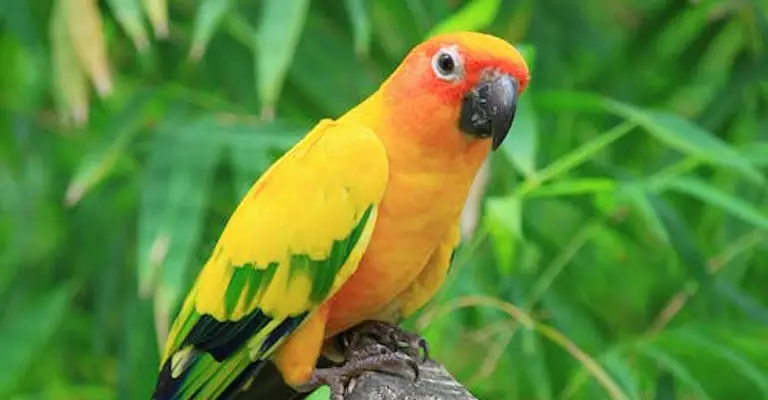
Conures are medium-sized parrots that are lively, playful, and curious. They can be very affectionate and bond strongly with their owners.
They can also learn to talk and do tricks, but they can be quite loud and noisy. They have colorful plumage and come in different species, such as sun conures, green-cheeked conures, and blue-crowned conures.
African Greys
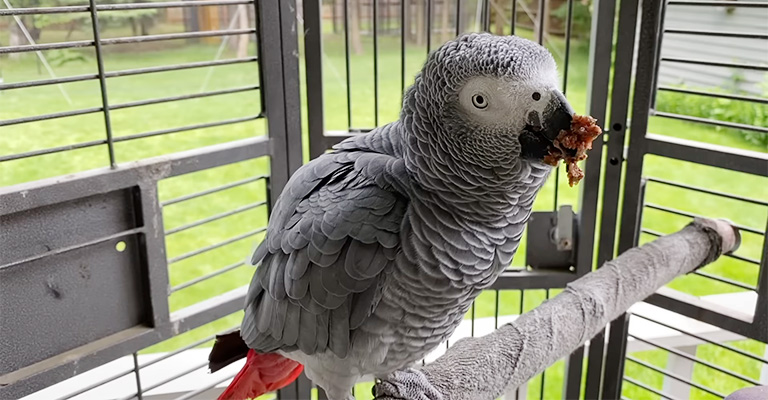
African Greys are large parrots that are considered to be one of the most intelligent and talented birds in the world. They can learn to talk with a large vocabulary and mimic sounds with amazing accuracy.
They can also understand concepts such as numbers, colors, shapes, and emotions. They need a lot of attention and stimulation to prevent boredom and depression.
Amazon Parrots
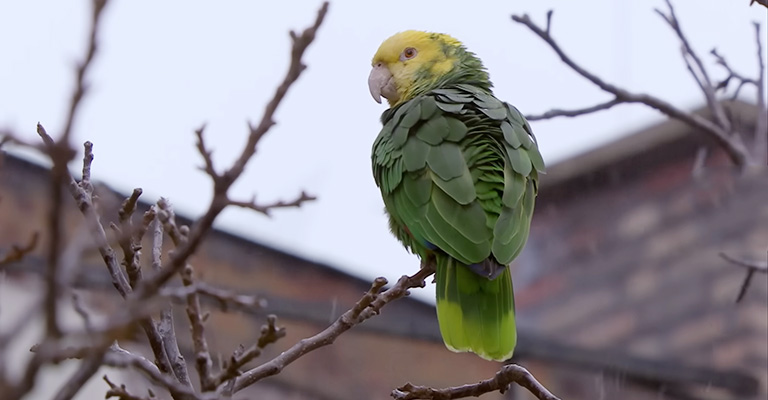
Amazon Parrots are another group of large parrots that are known for their talking and singing abilities.
They can be very entertaining and amusing with their antics and personalities. They can also be very loyal and affectionate with their owners, but they can also be territorial and aggressive if not trained properly.
Parrotlets
Parrotlets are small parrots that have big personalities. They are active, energetic, and fearless. They can also be very sweet and cuddly with their owners.
They can learn to talk and do tricks, but they are not very loud. They have mostly green plumage with some blue or yellow markings.
Pionus Parrots
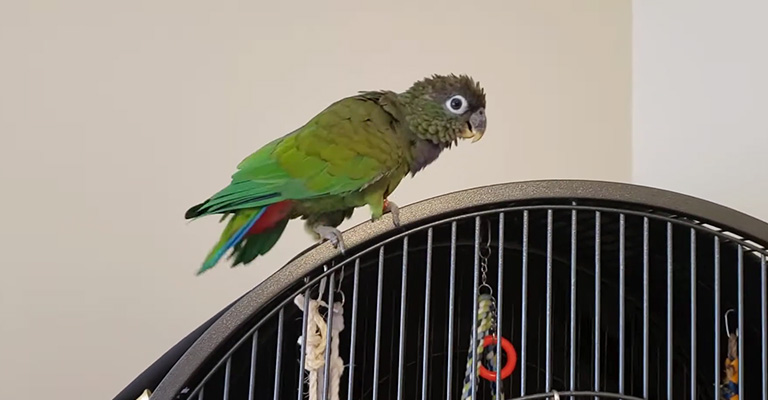
Pionus Parrots are medium-sized parrots that are calm, quiet, and gentle. They can be good pets for people who want a less demanding bird.
They can learn to talk and whistle, but they are not very noisy. They have mostly dark plumage with some red or purple accents.
Finches
Finches are small birds that are easy to care for and don’t need much human interaction. They are social birds that prefer to live in pairs or groups.
They can be very active and fun to watch as they fly and hop around their cage. They have various colors and patterns, such as zebra finches, society finches, and Gouldian finches.
FAQ
Pet birds can reduce stress and anxiety by providing companionship and promoting relaxation through their soothing presence and melodic songs.
Yes, interacting with and caring for pet birds can stimulate cognitive function in humans, particularly memory, problem-solving, and attention.
Absolutely. Pet birds can serve as conversation starters and foster social connections, which can be particularly beneficial for people prone to loneliness or social isolation.
Yes, studies have shown that the presence of pet birds can lower blood pressure and heart rate, potentially reducing the risk of cardiovascular problems.
Owning pet birds can offer emotional support and a sense of purpose, leading to improved mental well-being and decreased feelings of loneliness or depression.
Conclusion
The scientific evidence is clear: owning pet birds offers a multitude of benefits that positively impact the lives of their human companions.
From lowered stress levels and enhanced cognitive function to improved mental health and increased social interaction, the bond between pet birds and their owners is a testament to the intricate relationship between humans and the natural world.
As science continues to unveil the physiological and psychological advantages of having pet birds, it becomes apparent that these feathered friends are more than just delightful companions—they are therapeutic allies.
The harmony that arises from this interspecies relationship reminds us of the profound connections that can exist in the world around us.
Embracing the benefits of pet bird ownership not only enriches our lives but also underscores the importance of our responsibility as caretakers of the diverse and wondrous creatures that share our planet.